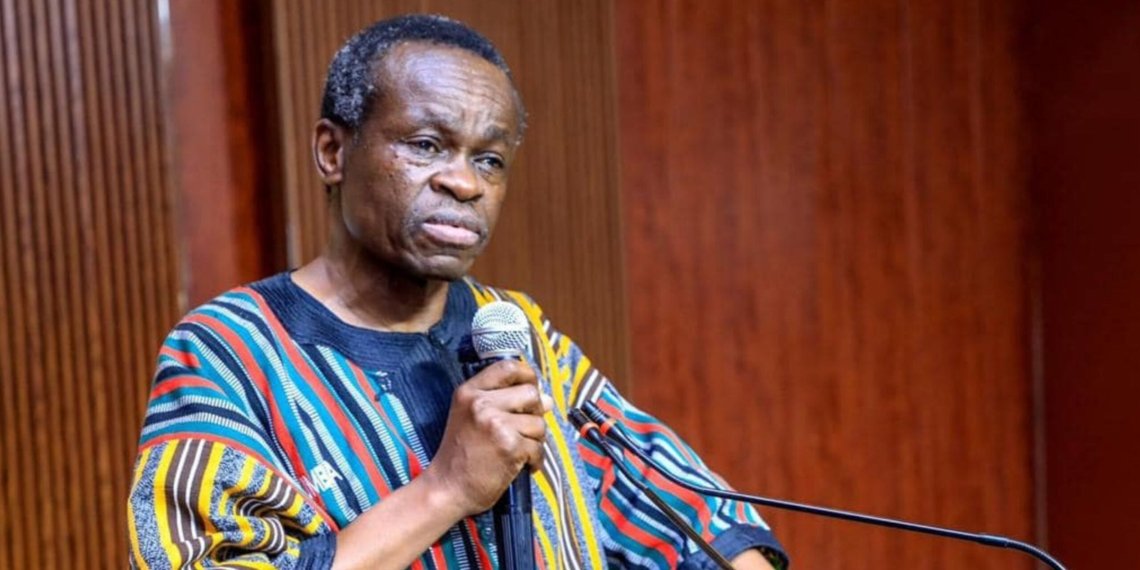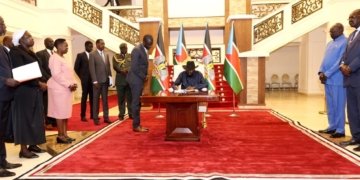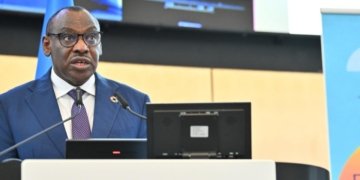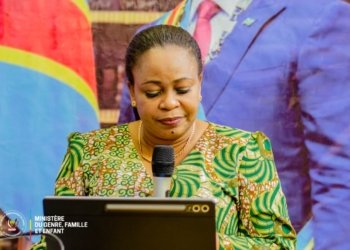Africa needs to completely reimagine how it governs itself, abandoning colonial-era structures that continue to strangle the continent’s potential.
Renowned Kenyan lawyer and pan-African thinker Prof. P. L. O. Lumumba made this case during a recent exchange on Vusi Thembekwayo’s podcast, delivering a frank assessment of why African states keep struggling.
Drawing from decades of political observation, Lumumba argued that most of the continent remains trapped by governance structures designed by European colonial powers.
“We are wedded to boundaries designed for us by European colonial powers,” he said. “And we have killed and maimed for them.”
These borders, drawn without considering cultural, linguistic, or geographic realities, continue to dictate how African states operate.
Most post-independence nations adopted European governance models wholesale rather than developing systems suited to local conditions. The price has been steep.
“All of them inherited the system that was equipped by the colonizer.” Lumumba said that these foreign frameworks were never designed to serve African interests or accommodate local realities.
He pointed to academic work by Ghanaian scholar Nana Kobina Nketsia V and American political scientist John F. Clark, who both contend that no African nation will succeed using frameworks built for colonial administration.
Building From the Ground Up
The solution lies in designing governance frameworks rooted in Africa’s diverse cultural and historical realities. Lumumba stressed that even within single territories, different regions require different approaches.
South Africa offers a prime example where what works in Zululand might need adaptation elsewhere, while both areas can still function within a coherent state model when designed thoughtfully.
The shift requires moving from inherited centralization to context-based design. Governance should work like architecture, Lumumba explained, built to match the landscape, climate, and needs of the people it serves.
“You go to an architect and say you want a four-bedroom house because you know your needs,” he said. “Africa must design its governance the same way, fit for purpose, aligned with the environment.”
The Congo Example
Lumumba offered a compelling thought experiment about the Democratic Republic of Congo (DRC). Instead of trying to govern everything from Kinshasa, imagine if regions like Kasai, North Kivu, and Bandundu operated as semi-autonomous entities under a shared national framework.
“Believe me,” Lumumba said, “within 10 years, the Congo [DRC] as we know it will have a GDP of no less than one trillion[US dollars], with the quality of people’s lives changing dramatically.”
This represents practical governance design from the ground up rather than imposing systems from the top down. The potential transformation would be remarkable.
Learning From Switzerland
Switzerland provides a powerful model for what is possible. The country once experienced deep linguistic and cultural tensions between German, French, Italian, and Romansh speakers.
As Lumumba aptly noted, there was tension “until somebody said let us create the Swiss Confederation.”
By devolving power and coordinating nationally only on shared interests like foreign affairs, Switzerland built one of the world’s most stable and prosperous states.
He said Africa can achieve similar results if it commits to having these difficult conversations.
The Missing Ingredient
What Africa lacks most is boldness, according to Lumumba. The continent needs courage to question old models, decolonize political education, and ask whether current systems actually serve African interests.
He recalled asking a friend teaching political science at the University of Nairobi whether Marx still dominated the curriculum.
The question highlighted how foreign political theory continues to shape African academic thinking.
Education must evolve to train leaders who can build systems rooted in African knowledge, governance traditions, and present realities.
Time for Change
Prof. Lumumba’s message carries urgency. Africa’s future won’t emerge from borrowed blueprints.
It will come from asking tough questions, designing locally appropriate solutions, and finding the courage to govern for African interests.
Until this transformation happens, systems will continue failing and Africa’s vast potential will remain unrealized.
The time for fundamental rethinking has arrived.


























